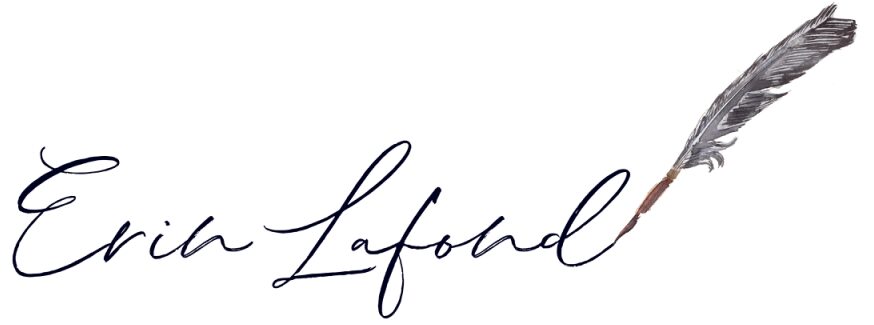How to Start a Research Project
Last updated on July 3rd, 2023 at 10:01 am
Whether you’re writing fiction or non-fiction, odds are you’re going to need to do some research. This might be more minor, like how to jumpstart a car, for fiction, or it might be major because you’re deep diving a topic for non-fiction. Regardless, it’s important to understand how to do research. Today, I wanted to go through how I typically start an actual research project. These are things that are going to require more than a quick Google search. They’ll take dedicated time and effort to properly research. Let’s get into it.
Evaluating Sources
Just a quick note on sources. You always want to think about the sources you’re using and how credible they are. This is getting increasingly tricky, but there are still some best practices.
For example, a .gov site typically has accurate information. A .org site is probably credible but look at their about page for any bias. Think through the organization’s goals and how that might impact the information they’re presenting. A .com site is the least reliable, and you really need to do your homework before accepting its information.
If you’re searching through a database for journal articles or peer-reviewed sources, you can typically rely on that information. These types of publications have strict and extensive rules for what you can and cannot publish, and these rules help keep their information accurate.
When it comes to evaluating sources, always look for bias, credentials, and sources. How are they presenting their information? Who are they, and how qualified/knowledgeable are they? Where are they getting their information from? Always ask these questions when you’re evaluating sources.
Research Project Steps
Here are the steps I typically follow when it comes to starting my research project. Your steps might look a little different depending on how much you already know and exactly what you’re researching. But this will provide you with a good starting point. Throughout this blog post, we’re going to be using the example of the woman’s role in the US during WWII.
Put together some sort of system for keeping track of your notes and sources
This is so important, and it’s something you really want to put together before you start. What your system is going to look like depends on who you are as a researcher and the tools you have access to. Personally, I like Asana, One Note, and Evernote. They’re great ways to keep track of everything.
If you’re handwriting notes, make sure you have a way to organize them, and I recommend typing those notes up at some point for better organization and searching. It’s much easier to find things if a computer can search for keywords.
Keep track of any potential sources and resources that come up. During the first stages, you’re literally just collecting information and places to go. So, have a method for keeping everything organized, even if it’s just a basic word document with different headings for the different topics or types of resources. Make notes of what each source is too and how it might be helpful.
Pro tip: If you’re writing down a quote, put it in quotes! Even if you’re handwriting, put it in quotes. Otherwise, you might not remember it’s a quote later and accidentally steal it. Seriously, this happens.
Perform a Google search
Yeah, this might seem obvious, but let’s talk about what you’re looking for. First, I would take a look at this blog post, which breaks down the various ways you can Google things. Google has some really cool features like using quotation marks to look for exact phrases, and I would definitely take advantage of them for your research project. Most search engines, including databases, have these features or something similar, so it’s worth learning in general. It’ll make your life easier in the long run.
So, using our example, I’m going to look up “women’s role during WWII in US.” I’ve put a screenshot below of the different links that popped up.
There are some great places to start here. The National WWII Museum and the National Women’s Museum are going to be reliable sources, and they’ll probably have tons of resources, primary documents, and photos. They might be able to point me in the direction of other reliable sources. So, I’ll go through those sites to learn the basics of women’s roles and see if there’s anything interesting or relevant that I want to read later.
Check out Wikipedia
Here’s the thing about Wikipedia. It’s great for cold, hard facts. These are things like when the US entered WWII, when was the Battle of Normandy, and when WWII ended. Wikipedia actually has pretty stringent rules for creating and editing content, and typically marks when something doesn’t have a citation. So, you can pretty much rely on any facts being correct. So, if you’re looking for a quick fact, Wikipedia is great.
An equally good use of Wikipedia when it comes to research projects is looking at its sources. So, let’s say you go to the Women in WII page on Wikipedia. You’ll notice that a lot of things have citations. So, as you’re reading through the page, you can click on the end note and see where that information came from. If you scroll all the way down to the bottom of the page, you can see all the citations. This is an amazing place to mine sources. You’ll still need to evaluate them, but in general, Wikipedia’s citations are a gold mine.
Check out databases
Databases are another great place to do a general search to see what you find. They’re essentially search engines, so your Googling skills will come in handy. You might have a better idea by now of what you’re looking for too, which will make your searches more effective.
Your library will typically have access to some sort of databases, but which ones depends on the type of library it is (academic, public, historical, etc.) and how well-funded they are. It’s worth noting that some libraries will have databases that you can only access on-site, and you might need to interlibrary loan some articles. See the next step for more details about this.
Start finding and collecting the resources you’ve found
Okay, you now have a giant list of sources and things to read, and you’ve hopefully categorized them by topic and maybe even type of source within a topic. I also further hope for you that you’ve written down how that source might be helpful and what it talks about.
Now’s the time in your research project to start really finding and collecting these sources. A lot of them will be online, but some won’t. Some of them you might need to buy, but hopefully not all of them. When it comes to collecting resources so you can evaluate them, your library is your best bet. Often you can do interlibrary loans, which means if your library doesn’t have that resource, they can request it from another library. This works for books, movies, and sometimes even journal articles.
If you belong to a college or university, you’ll probably have an easier time finding everything. Academic libraries usually have more textbooks and well-researched books. They also have better databases. (They also tend to have longer checkout periods.) However, your public library also should also be able to get you some if not most of what you need. Some public libraries even have interlibrary loan access with academic libraries, so definitely ask about that.
Libraries also have the added bonuses of librarians! You can always ask for help when it comes to finding resources or doing the actual research.
Start reading and evaluating
Okay, you have a bunch of books, articles, and maybe even documentaries now. Now is the time to start reading, watching, and taking intensive notes. By now, hopefully, you have some sort of idea of what you’re really interested in and looking for. Hopefully, as you were going through and finding sources, you were finding out which aspects you were most excited to learn about.
So, you may have narrowed things down from “women’s roles in WWII in the US” to “women in the US military during WWII,” or “how American women handled domestic duties during WWII,” or “how the US got women to get involved during WWII.”
Being narrower in your topic allows you to evaluate resources quicker and determine if they’re helpful to you. Some resources won’t be helpful at all. Some will help you create the foundation for your research project. The unfortunate part is that you won’t know until you go through it. Good luck, truly.
Go down some rabbit holes
As you move through your research, you’re probably going to find yourself getting interested in specific topics or aspects. Allow yourself to go down some rabbit holes based on your interests or the specific information you need. You’ll never know what you find.
Odds are, you’ll probably find more sources to go through or specific people to reach out to for help or an interview. That’s okay. That’s part of the process.
There isn’t only one way to start a research project. You might find that you work better exhausting one narrow topic at a time rather than sifting through a bunch of information all at once. However, hopefully, this was still helpful in giving you some places to go or finding your starting place.
Got questions? Leave them in the comments!


One Comment